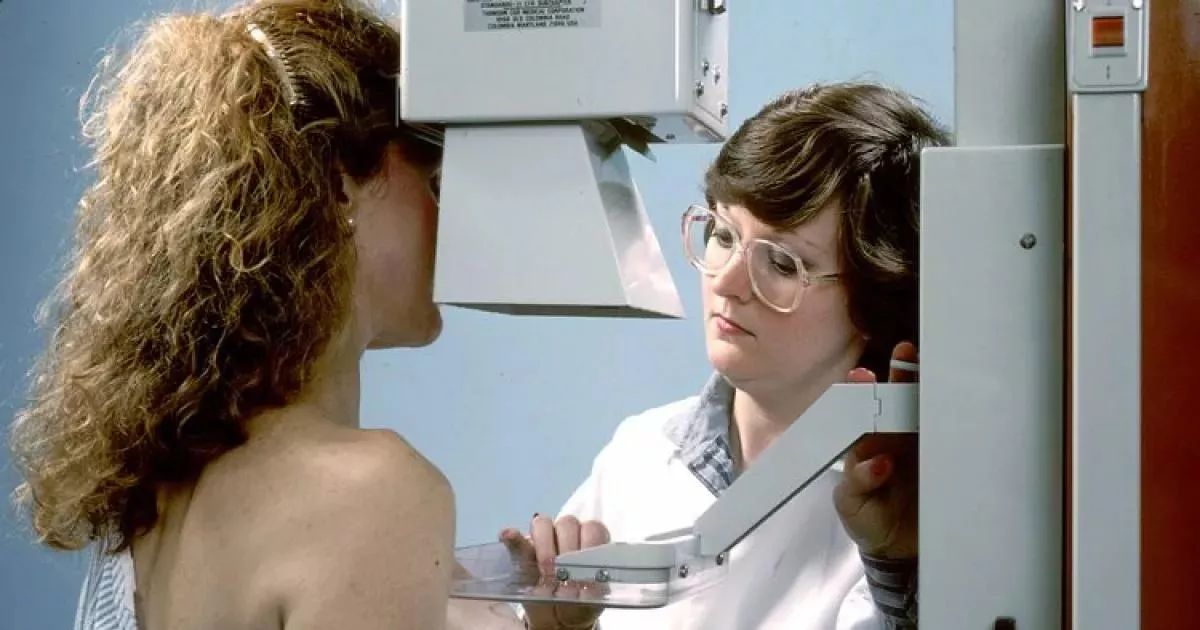Breast cancer screening aims to detect breast cancer in healthy women before symptoms appear, assuming early detection leads to better outcomes. Various screening methods are used, such as clinical and self breast exams, mammography, genetic screening, ultrasound, and MRI.
1988: Launch of the NHS Breast Screening Programme in the UK
In 1988, the UK launched the world's first national breast cancer screening program, the NHS Breast Screening Programme, which achieved national coverage by the mid-1990s.
1998: Medicare Coverage for Mammography Screening
Starting in 1998, Medicare began covering annual screening mammography for women aged 40 and older.
2002: Launch of BreastScreen Singapore
In 2002, Singapore initiated its national breast screening program, BreastScreen Singapore, targeting women aged 50-64 for screening every two years. This program stands out as Asia's only publicly funded national breast cancer screening initiative.
2003: Breast Cancer Screening in Canada
In 2003, Canadian breast cancer screening programs varied in their offerings of clinical breast examinations and mammography screening for different age groups. Approximately 61% of women aged 50-69 reported having a mammogram within the past two years.
2003: Cochrane Review on Breast Self-Examination
In 2003, a Cochrane review found that breast self-examination was not associated with lower death rates and increased harms due to the identification of benign lesions and unnecessary biopsies.
2005: Breast Cancer Screening Coverage in the United States
In 2005, approximately 68% of U.S. women aged 40-64 had undergone a mammogram in the preceding two years, with varying coverage based on insurance status.
2006: Breast Cancer Screening Coverage in England
As of 2006, roughly 76% of women aged 53–64 in England had received at least one breast cancer screening in the previous three years.
2009: United States Preventive Services Task Force Recommendation
In 2009, the United States Preventive Services Task Force recommended that women over 50 should undergo mammography screening every two years.
2012: Nordic Cochrane Collection Review on Mammography Screening
In 2012, the Nordic Cochrane Collection suggested that advancements in diagnosis and treatment might reduce the effectiveness of mammography screening. They concluded that screening might no longer be effective in preventing deaths and raised concerns about misleading information online.
2013: Cochrane Review on Mammography Screening
A 2013 Cochrane review estimated that mammography screening for women aged 50-75 resulted in a relative decrease in breast cancer death risk of 15%. However, the analysis of least biased trials showed no significant difference in mortality between screened and unscreened groups.
2013: Cochrane Collaboration Statement on Mammography Screening
In 2013, the Cochrane Collaboration stated that the highest quality evidence did not show a decrease in cancer-specific or all-cause mortality due to mammography screening. They highlighted a 30% increase in overdiagnosis and overtreatment, raising questions about the balance of benefits and harms.
2016: Disparities in Breast Cancer Screening Uptake in the UK
A 2016 UK study revealed lower breast cancer screening uptake among women with severe mental illness and those from minority ethnic communities, particularly women of South Asian heritage.
2017: Research Study Trial for Expanded Age Range in UK Breast Screening
In 2017, the NHS Breast Screening Programme supported a research trial to assess the risks and benefits of screening for women aged 47-49 and 71-73.
March 2022: European Commission's Recommendation on Breast Cancer Screening
In March 2022, the European Commission's Scientific Advice Mechanism suggested extending breast cancer screening to women in their mid-40s.
Trending
5 months ago Ligue 1 Season Preview: Subscription Options, Team Favorites, and Key Players

6 months ago Audit Questions Moore's Budget Claims, Scrutinizes Maryland Leases & Overpayments

2 months ago Tom Cruise Faces Budgetary Battles for Mission: Impossible with Paramount, Ellison.

10 months ago Social Security faces threats from Trump, Musk, and DOGE; Angus King advocates protection.
7 months ago Real Oviedo's Promotion Chase, Cazorla's Sacrifice, and Reina's LaLiga Goal.

9 months ago Sanju Samson Injured, Retires Hurt as Capitals and Royals go to Super Over
Popular

Thomas Douglas Homan is an American law enforcement officer who...

Martin Luther King Jr was a pivotal leader in the...

XXXTentacion born Jahseh Dwayne Ricardo Onfroy was a controversial yet...

Instagram is a photo and video-sharing social networking service owned...

William Franklin Graham III commonly known as Franklin Graham is...

Jupiter is the fifth and largest planet from the Sun...
